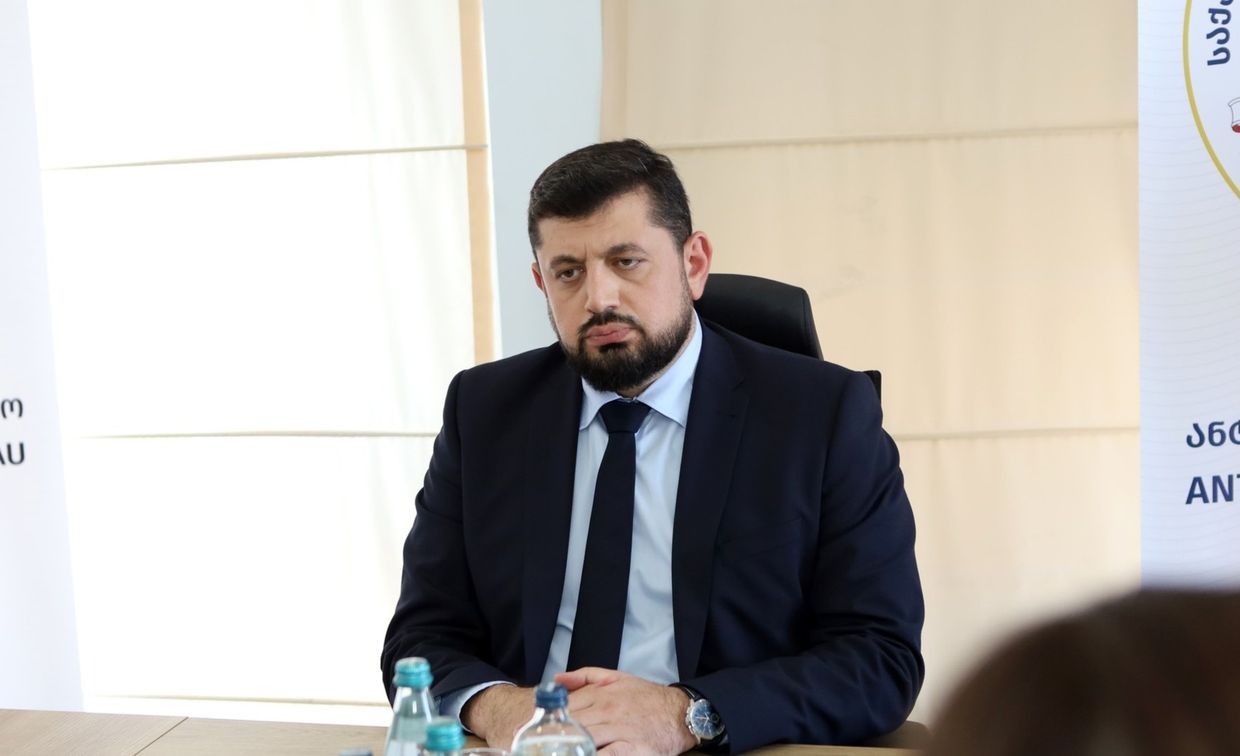
Georgia’s Anti-Corruption Bureau has launched an inquiry into two more Georgian civil society organisations. Like the five other groups before them, they were also ordered to provide the bureau with extensive financial and legal information, including personal data about their beneficiaries.
This time, the court order was issued to the Media Development Foundation (MDF) and the Social Justice Center (SJC). In their public statements, both groups said that they would fight the requests legally, saying that there was no legitimate basis for disclosing the information requested by the bureau, including sensitive data.
‘The legal proceedings that have been initiated are clearly unlawful and arbitrary — even under the authoritarian laws passed by Georgian Dream — and represent a grave violation of the freedom of association protected by the constitution and international conventions’, the SJC wrote.
The MDF has also vowed to ‘pursue all available legal avenues to challenge this decision and to curb the implementation of the repressive laws’.
As of now, similar requests have been sent to five other groups, including Civil Society Foundation, women’s rights group Safari, Transparency International — Georgia (TI), the Economic Policy Research Centre (EPRC), and the Future Academy.
These inquiries mark the first instance of Georgian Dream’s application of new legislative pieces targeting civil society — laws that critics have dubbed ‘Russian laws’, drawing comparisons to the draconian regulations imposed by the Kremlin.
The international human rights organisation Amnesty International has also criticised the process, describing it as a ‘blow to freedom of association’. The organisation's Deputy Director for Eastern Europe and Central Asia, Denis Krivosheev, stated that ‘forcing non-governmental organisations to hand over sensitive information’ limits their independence and autonomy and grants disproportionate governmental control over their operations.
According to the court documents, seen by OC Media, the bureau requested the information based on three different laws: the law on political associations of citizens, the law on combating corruption, and a recently passed provision in the law on grants, which prohibits the receipt of grants without government approval.
However, the court document did not mention another newly adopted law — the Foreign Agents Registration Act (FARA) — which the bureau also cited as a basis for requesting the information in at least one motion submitted to the Tbilisi City Court, according to a document seen by OC Media.
The organisations specifically emphasised the sensitivity of their beneficiaries’ personal data, declaring in a briefing on Wednesday that they would not disclose this information — even if it results in their sentencing to prison.
Public speeches, social media posts, and other ‘evidence’ against NGOs
Responding to criticism from civil society on Wednesday, the head of the Anti-Corruption Bureau, Razhden Kuprashvili, stated that the legal and financial documentation requested by his office ‘does not go beyond the boundaries of the law’.
He claimed that the inquiries aimed solely at examining ‘the purpose of the activities of organisations that receive grants or engage in political activity’.
Kuprashvili also said the bureau’s work would focus on identifying organisations whose activities do not align with their declared objectives and are ‘covertly engaged in political activity’.
The court motion viewed by OC Media concerned a request for information from the Civil Society Foundation. The document is accompanied by ‘evidence’, parts of which are presumably linked to the bureau’s intention to identify ‘covert engagement in political activity’.
Among the data provided in this section is information about the events and campaigns organised or contributed to by the foundation, as well as statements, social media posts, and even the organisation’s charter, which outlines its goals, including the promotion of democratic and liberal values in Georgia.
Presented as evidence is a statement by the foundation’s representative, Vano Chkhikvadze, to the US Congress about democratic backsliding in Georgia, in which he said that Georgia stood at a crossroads between continuing the fight to be part of Europe and being within Russia’s sphere of influence.
The same section includes a Facebook post by the foundation stating that it joined a pro-European strike in January, as well as a social media announcement of a rally against political repression.
This section also includes a list of projects funded by the foundation which, according to the bureau, were aimed at ‘shaping public political views’. Among them are projects that promoted Georgia’s EU integration.
It remains unclear why FARA — one of the laws cited by the bureau in its motion — was not mentioned in the court ruling. Lawyer Saba Brachveli told Netgazeti that although the court granted the bureau’s request based on three legal grounds, the ruling should still have included reasoning for why the motion was not granted on the basis of the fourth one — FARA.
‘I have no illusion that this is the result of an impartial and objective judicial assessment, but the fact is that this legal basis has vanished’, Brachveli added, suggesting that one possible reason could be Georgian Dream’s attempt to avoid a potential appeal to the European Court of Human Rights against FARA, in the event that the court officially mentioned it.
A legislative crackdown against civil society
In recent months, the ruling Georgian Dream party has adopted a series of restrictive laws and amendments, several of which have specifically targeted civil society organisations and independent media.
One of the amendments made to the law on grants in April required civil society organisations to obtain ‘the consent of the government or an authorised person/body designated by the government’ before receiving a grant from outside of Georgia. In addition, donor organisations must also submit a copy of the grant to the Georgian government beforehand.
During the same period, the ruling party introduced what it called a word-for-word translation of the US Foreign Agents Registration Act (FARA). Under the law, a foreign agent is defined as any person who is under the control of, or acts at the direction of, a foreign power and acts in the interests of that foreign power.
The enforcement of both laws — including decisions about who is ‘acting at the direction of a foreign power’ and who is receiving unauthorised grants — has been entrusted to the Anti-Corruption Bureau: the agency that requested data from the seven organisations.
Georgian Dream has repeatedly claimed that the new bills were necessary to fight the ‘influence of external powers’. Nonetheless, critics of the ruling party have insisted that these changes aim to undermine the media and civil society in an already fragile democracy.
The restrictive laws are being passed in a parliament where opposition is virtually nonexistent. Following the disputed 2024 elections, opposition parties refused to participate in parliamentary sessions.
Since then, the ruling party has been initiating and passing several new restrictive pieces of legislation without any obstacles, targeting media, civil society, and other critics.











